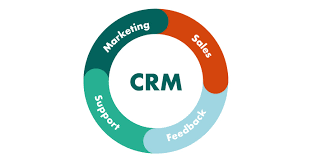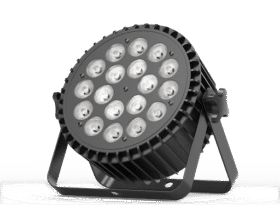Organize, monitor, and store data concerning customers through a software system driven by data.
Explanation of CRM
Customer Relationship Management (CRM) is a collection of interconnected software solutions driven by data that aid, in organizing, monitoring, and storing information about both potential customers of your business. By maintaining this information within a platform business teams can access insights whenever needed.
Lacking the assistance of a CRM solution could result in missed opportunities for growth and potential revenue loss due, to operational processes or underutilization of customer relationships and sales prospects.
What is the purpose of a CRM system?
Not long-ago companies used manual methods like spreadsheets, emails, and address books to manage customer data. These isolated systems made it challenging for teams to access and share information efficiently hindering their ability to run marketing campaigns follow up on sales leads and support customers effectively.
Fast forward to today. CRM software automatically gathers a range of customer data such as contact details, social media activity, purchase history, and support requests. This information is then consolidated into profiles that can be shared across teams.
CRM systems also integrate with business tools like chat platforms and document-sharing apps. They come equipped with features like business intelligence and AI capabilities that streamline tasks and provide insights.
In essence, modern CRM tools offer sales, and marketing service teams quick access, to all the information needed to build customer relationships.
Here are some ways you can leverage CRM capabilities to benefit your company:
1. Keep An Eye on Each Opportunity as It Progresses Through the Sales Funnel, For Sales Outcomes.
CRM solutions enable you to monitor lead-related data along with insights allowing sales and marketing teams to stay organized understand the stage of each lead in the sales journey and keep track of team involvement in every opportunity.
2. Utilize Real-Time Performance Data Through Sales Monitoring.
Integrating sales data into your CRM system provides an up-to-date and precise overview of your sales activities. By having a real-time perspective of your pipeline, you can quickly identify any slowdowns or bottlenecks. Celebrate wins made by your team.
3. Strategize Your Moves with Generated Insights.
Utilize AI. Embedded intelligence to focus on priorities and optimize how your team allocates their time and efforts effectively. For instance, sales teams can pinpoint leads that are ripe for handover. Those that require further follow-up actions.
4. Streamline Workflows with Automation Features.
Automate tasks such, as creating sales quotes collecting customer feedback, and running email campaigns to enhance efficiency across marketing, sales, and customer service functions. This automation helps reduce tasks so that your team can concentrate on activities.
5. Enhance The Impact of Customer Interactions by Tracking Them
CRM tools offer functionalities that leverage customer behavior insights and highlight areas, for improvement to enhance your understanding of interactions across customer touchpoints.
6. Interact Across Various Channels to Enhance Customer Engagement.
From chat and phone calls to emails and social media interactions CRM tools enable you to engage with customers wherever they are fostering trust and loyalty that encourages repeat business.
7. Grow Dynamically to Stay Ahead, In the Landscape.
An adaptable integrated CRM solution based on a platform helps address the evolving requirements of your business and the market. Launch marketing campaigns, e-commerce ventures, and other projects swiftly while responding promptly to consumer needs and market dynamics.
Why should you consider implementing a CRM solution?
When crafting your CRM strategy and assessing customer relationship management solutions it’s essential to choose one that offers a view of each customer relationship. Additionally, opt for a solution that gathers data at every customer interaction point analyzes it effectively, and presents insights intelligently.
Discover how to select the CRM system for your requirements, in The CRM Buyer’s Guide for Today’s Business. By utilizing the CRM platform your organization can improve communication. Ensure exceptional experiences throughout every phase of the customer journey as detailed below;
Identifying And Engaging with Appropriate Customers.
Utilizing insights and data-driven understanding of consumer behavior allows you to pinpoint, target, and attract leads—and subsequently convert them into customers.
Enhancing Customer Interactions.
Equipped with a view of the customer profile each member of the sales team will possess knowledge about a customer’s interactions, purchasing behaviors, and any other relevant information that enables them to deliver personalized service to each client effectively.
Tracking Progress, Across the Entirety of The Customer Journey.
Understanding where a particular client stands within your sales cycle empowers you to tailor campaigns and seize opportunities that drive engagement levels.
Boosting Team Efficiency.
Enhancing visibility and optimizing workflows can boost efficiency allowing your team to concentrate on the tasks.
How Can a Customer Relationship Management (CRM) System Benefit Your Company?
Businesses of all sizes find value, in utilizing CRM software. For businesses aiming for growth CRM streamlines business operations allowing employees to concentrate on valuable tasks. In the case of enterprises, CRM simplifies and enhances the most intricate customer interactions.
Let’s delve deeper into how a CRM system can impact your business teams.
Marketing Teams
Enhance your customer’s experiences. By creating multichannel marketing campaigns nurturing leads with tailored buyer journeys and coordinating teams using planning and real-time tracking tools you can craft personalized marketing strategies that resonate with your audience.
By gaining insights into your brand’s reputation and market trends through customized data dashboards you can prioritize leads to your business success. This enables you to swiftly adapt using targeted automated processes based on analysis for decision-making.
Sales Teams
Empower sales representatives to engage with customers effectively to comprehend their requirements better and secure deals. With business expansion identifying prospects and clients through sales tactics becomes more straightforward leading to a well-thought-out strategy, for advancing your sales pipeline.
Crafting a sales strategy infused with valuable insights is key, to nurturing customer relationships enhancing efficiency boosting sales performance, and driving innovation using a modern and flexible platform. Leveraging AI tools that analyze real-time data trends allows you to monitor customer interactions from beginning to end sales processes with tailored suggestions for a personalized buying journey at any time or location.
Customer Support Teams
Deliver seamless omnichannel experiences to customers by utilizing service bots that equip your team with the resources to add value and enhance engagement in every customer interaction. By offering services agents can effectively. Cross-sell products based on relevant data, feedback, surveys, and social media insights optimizing their resources in response to current service trends.
Providing guided support across all channels enables customers to easily connect with agents and swiftly resolve issues resulting in a customer service experience.
Field Service Teams
Empower your field agents to provide face-to-face experiences. Incorporating Internet of Things (IoT) technology, into your operations enables problem detection—automating work orders, scheduling tasks efficiently, and dispatching technicians seamlessly with a few clicks.
By improving the way, you schedule tasks and manage inventory you can enhance efficiency on-site provide a service, and cut down on expenses.
Keeping in touch, with customers through communication channels that include real-time tracking of locations, appointment reminders, quotes, contracts, and scheduling details helps maintain a strong connection between clients and your field staff fostering trust in your company.
Project Service Automation Teams
Utilize project service automation teams to enhance your profitability by utilizing planning tools and analytics that support the development of a customer-focused service model. By gaining insight into costs and revenue through robust project planning features and user-friendly dashboards you can predict needs assess resource availability and forecast project success.
Additionally, by monitoring resource utilization using dashboards you empower your service professionals to leverage these insights in their tasks to maximize resources effectively. With access, to data-driven insights teams are more likely to streamline processes collaborate seamlessly within the organization’s framework, and boost overall productivity.
Conclusion
In summary, CRM systems play a role, in today’s business landscape for software development company. They streamline customer information and tasks. Offer valuable insights across various departments. Within the realm of software development CRM solutions can greatly enhance project management, communication with clients, and allocation of resources. By making the most of CRM features these businesses can effectively monitor client needs meet deadlines consistently and deliver top-notch products. Ultimately integrating a CRM system empowers software development companies to cultivate client connections boost efficiency and stand out in a competitive market. With the industry progressing adopting CRM technology is key for growth and prosperity, in the software development sector.















Leave a Reply